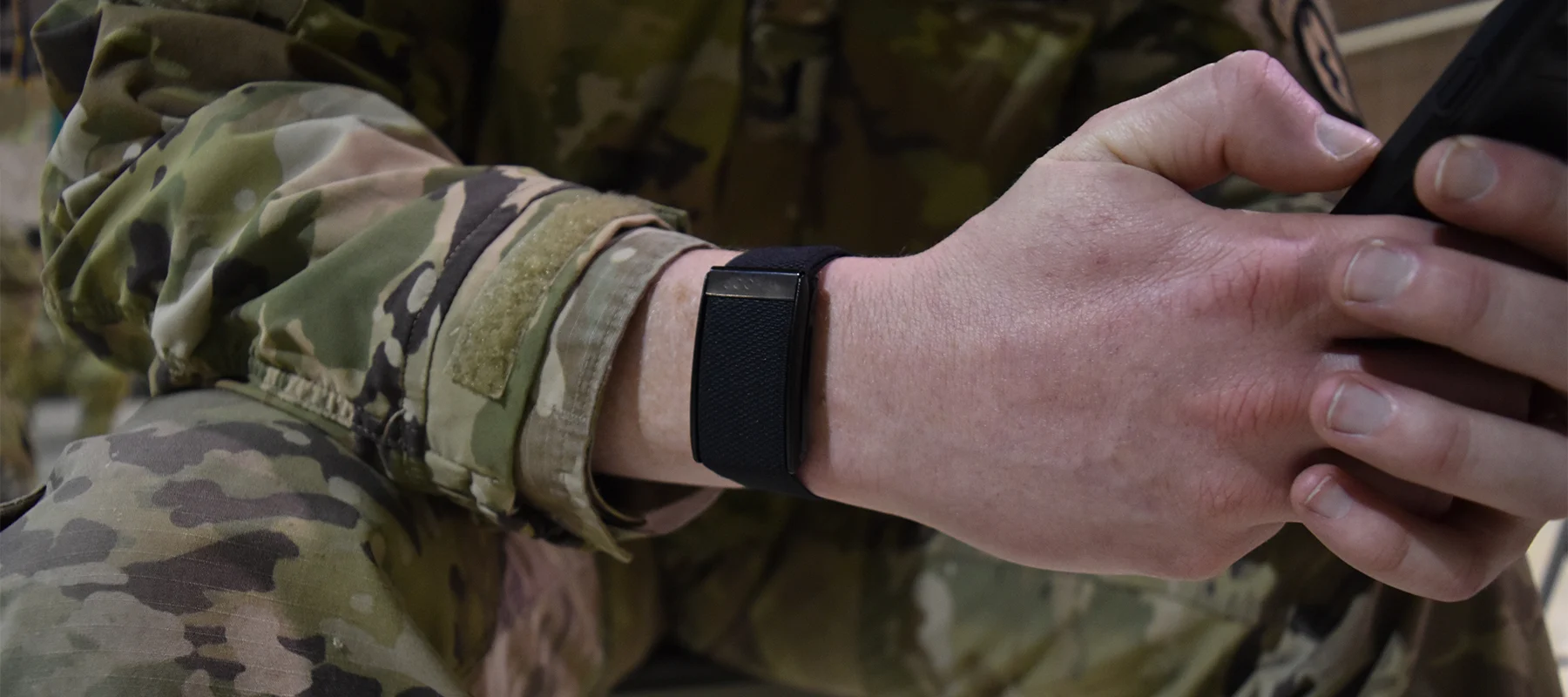Topics
- Press Release
- Press
WHOOP Partners with U.S. Army in Study to Examine Stress in Soldiers

Research Aims to Create Blueprint for Training to Improve Soldier Resilience
BOSTON, February 24, 2021 – Today, WHOOP and the United States Army Paratroopers of the 4th Infantry Brigade Combat Team (Airborne), 25th Infantry Division, “Spartan Brigade” announced a first-of-its-kind study to examine the resiliency of soldiers operating in an Arctic environment. This new partnership will tap into real-time WHOOP physiological data to uncover insights that will create a blueprint for how soldiers train, fight, and manage stress in the most extreme military conditions. 1,000 Spartan Brigade paratroopers at Joint Base Elmendorf-Richardson, Alaska are currently wearing WHOOP Strap 3.0 to measure daily strain, recovery rates, sleep quality, and more as part of a six-month study in collaboration with the University of Queensland. The 24/7 health monitor is built to withstand the rigors of military use with a waterproof, unobtrusive design plus five-day battery life with on-the-go charging. WHOOP is also uniquely suited for tactical performance with wearability from wrist to upper arm and no Wifi, GPS, or geolocation capabilities. “Previous research has typically focused on investigating stress in laboratory settings using standardized stress tasks,” said Kristen Holmes, VP of Performance Science at WHOOP and Principle Investigator on the study. “We are carrying this study out in the field to better understand how personal, psychological and situational factors can impact a soldier while training during extreme Arctic conditions. We are proud to support our troops in an innovative way and this data could be a critical tool for the military to improve soldier resiliency at a time when mental health issues, and suicide rates are higher than ever.” By providing the United States Army with more insight about individual physiology and the impacts of training in an extreme environment, soldiers will be better equipped to manage stress and ultimately, have higher readiness. All leaders from the squad level, NCOs and above, will have access to their paratroopers’ data, so they can adjust training and operational plans to maximize the health and readiness of their teams.
“Imagine as a squad leader that you have a paratrooper that has had an abnormally low recovery for several days,” said the Spartan Command Sergeant Major Alex Kupratty, “Maybe your platoon has been in the field for weeks, or the paratrooper just returned from an Army school. Now, you have the data to better help them recover, or to adjust your training to match the team’s needs.”
The research project will analyze personalized data like heart rate variability, resting heart rate, cardiovascular strain, and respiratory rate to also create a biometric baseline for the Spartan Brigade grounded in overall resilience, stress, and sleep quality. Unlike blind studies, the participating paratroopers will have immediate access to their own data, as well as techniques to maximize recovery, and can make decisions using this feedback to optimize their personal performance. “WHOOP provides seamless and highly reliable biometric capture, thereby producing objective measures of sleep quality and recovery, which are of central importance to our research,” said Dr. William von Hippel, lead investigator on the study and professor at The University of Queensland. “Once the data are analyzed, we hope to uncover insights the military could leverage to enhance training regimens and maximize soldier preparedness.” The study will conclude in May and full findings will be submitted for peer review this summer. Learn more about this ongoing research from study project leader for the Spartan Brigade, Chief Warrant Officer 4 Phillip Ranck, on the WHOOP Podcast.